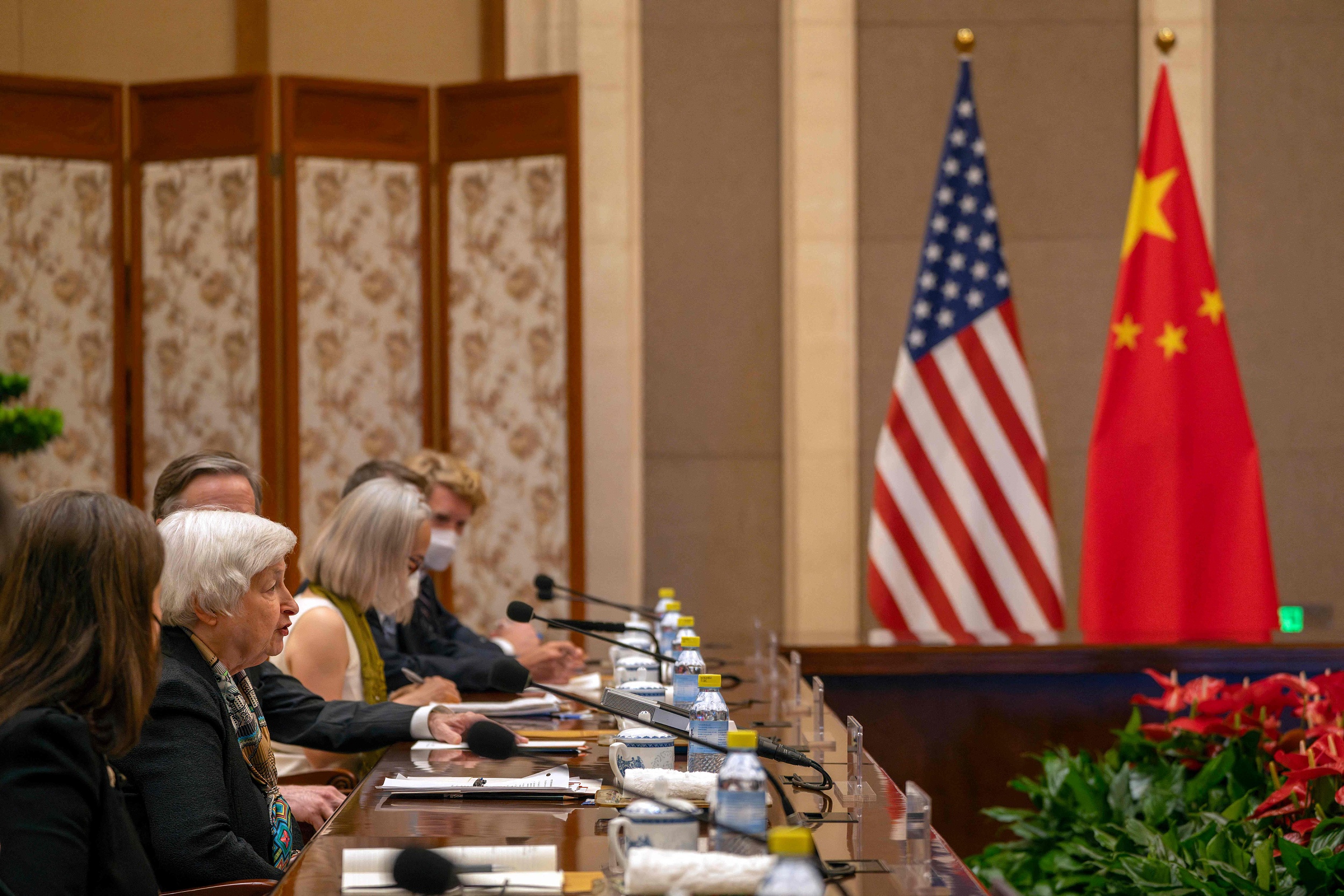Investment Ban on China to Recoil on U.S.

U.S. Treasury Secretary Janet Yellen visits China in July, 2023. (PHOTO: VCG)
By GONG Qian
U.S. President Joe Biden signed an executive order in early August, restricting American investment in China in three high-tech sectors: artificial intelligence, semiconductors and quantum technology. The excuse was "national security" concerns, just as the U.S. had done while imposing earlier curbs on China.
U.S. Treasury Secretary Janet Yellen told Bloomberg Television in July that the restrictions are "narrowly targeted" and would not "have a fundamental impact on affecting the investment climate for China," adding that they weren't meant to curtail China's overall growth.
However, it is obvious that the U.S. is not honoring its words to not decouple from China. Furthermore, it is fueling tensions in the bilateral relations.
Considering the influence of geopolitics on the economy and technology, the curbs would undoubtedly undermine the interests of companies and investors in both countries.
In the past five years, China's foreign direct investment has maintained an advantage compared with other countries with its return rate reaching 9.1 percent, said the spokesperson of China's State Administration of Foreign Exchange in April. More than 70,000 U.S. companies have invested and operated in China, and nearly 90 percent of the operations are profitable. Among them, the U.S. stakeholders have also been reaping benefits by investing in China's hi-tech sector, but now their investment would face the administrative restrictions set by the U.S. government, Gong Ting, an associate research fellow at the Department for American Studies, China Institute of International Studies, told Science and Technology Daily.
According to Biden's executive order, a U.S. company planning to invest in the three Chinese tech sectors must provide information and details about their investment to the government. "It is the companies' worst nightmare. Not only are they going to be made to disclose this cutting-edge amazing stuff they're doing but who they're doing it with, what they're doing it for, who's involved," Deborah Curtis, a former Central Intelligence Agency deputy general counsel for litigation and investigations and partner at U.S. law firm Arnold & Porter, was quoted as saying by Bloomberg.
"The curbs are a violation of economic laws and do no good to both sides," said Gong, adding that, "In my opinion, during the 45-day public comment period, the White House will receive disagreements and objections."
The latest rules would negatively affect the climate for U.S. enterprises and capitals that are going to invest in China. Meanwhile, they may have a spillover effect on U.S. investment in other Chinese industries and sectors, said Gong.
The actions of the U.S. government-run counter to its words. The executive order is undoubtedly another example of decoupling. From the previous decoupling in the field of trade and supply chains to the latest curbs on investment, the U.S. has changed from being a main driver of economic globalization into a powerful barrier to it, said Gong. The reason behind all these curbs is to hinder China's advancement in the hi-tech industry and overall growth.
China, on the other hand, has been calling for opening-up and cooperation to tackle global economic challenges. On August 13, soon after the latest U.S. curbs, China released a list of measures to further optimize the environment for foreign investment and attract foreign investment. This is definitely a cause for cheer among foreign investors.
It is time the U.S. listens to rational voices during the public comment period and does more good to both countries.






